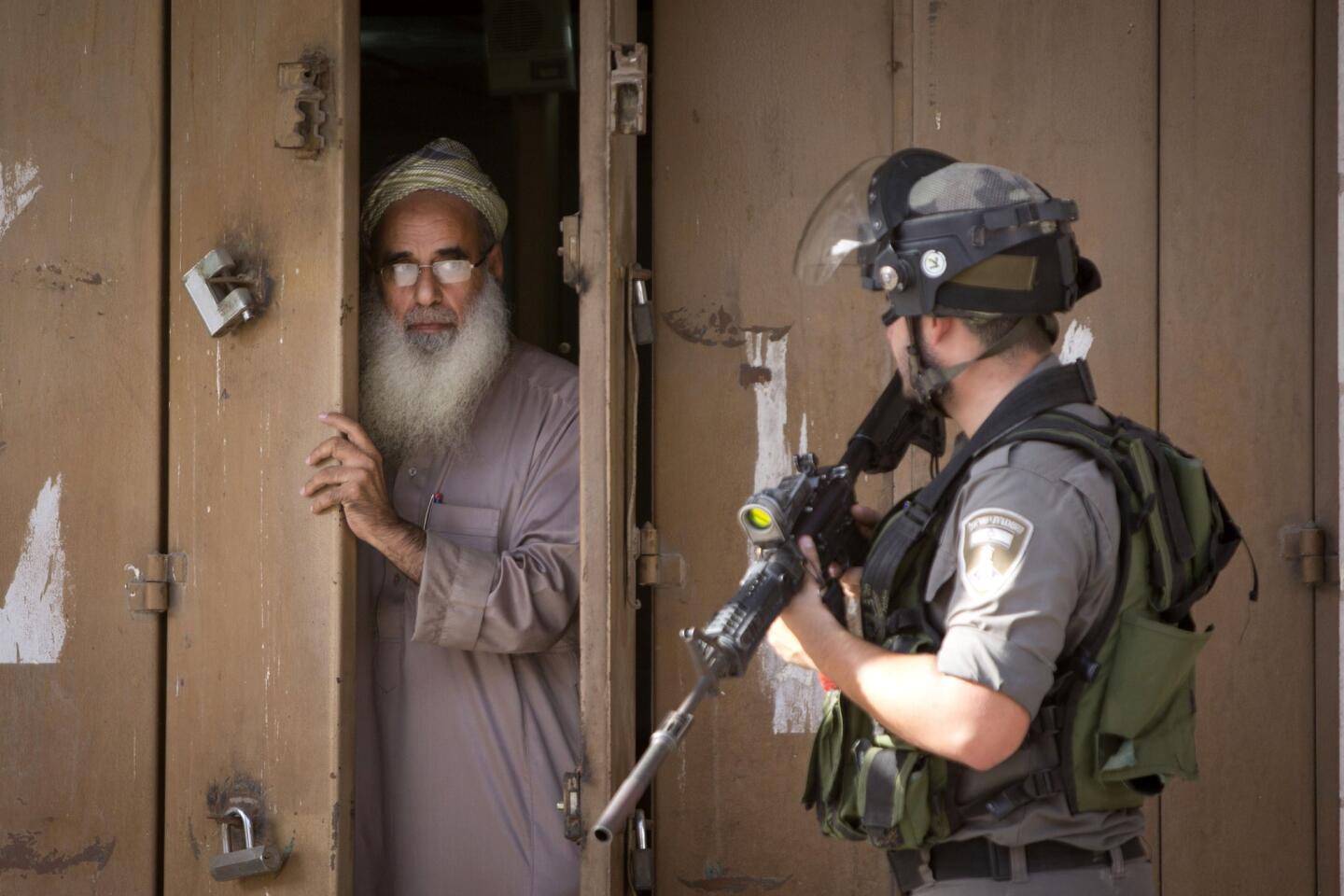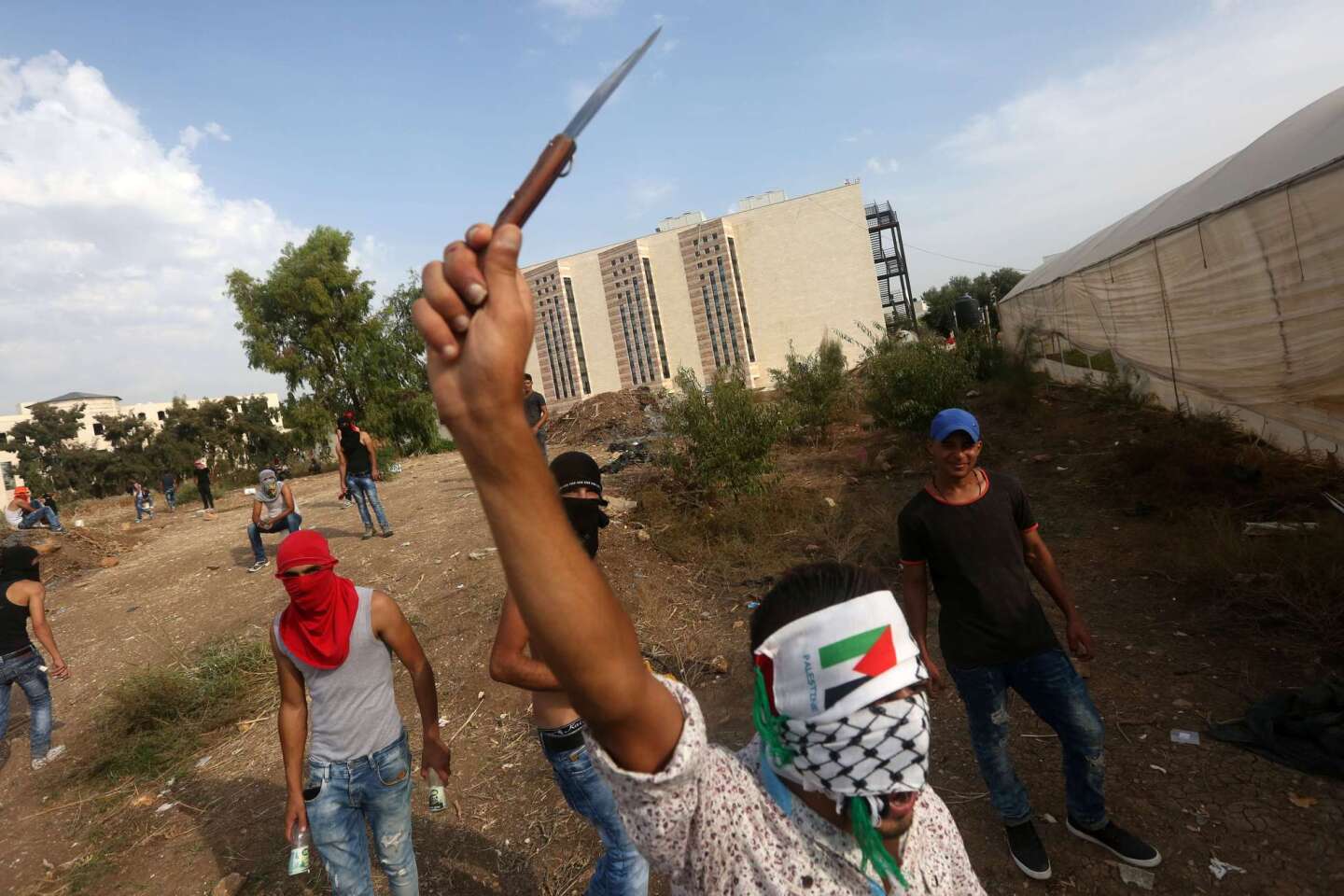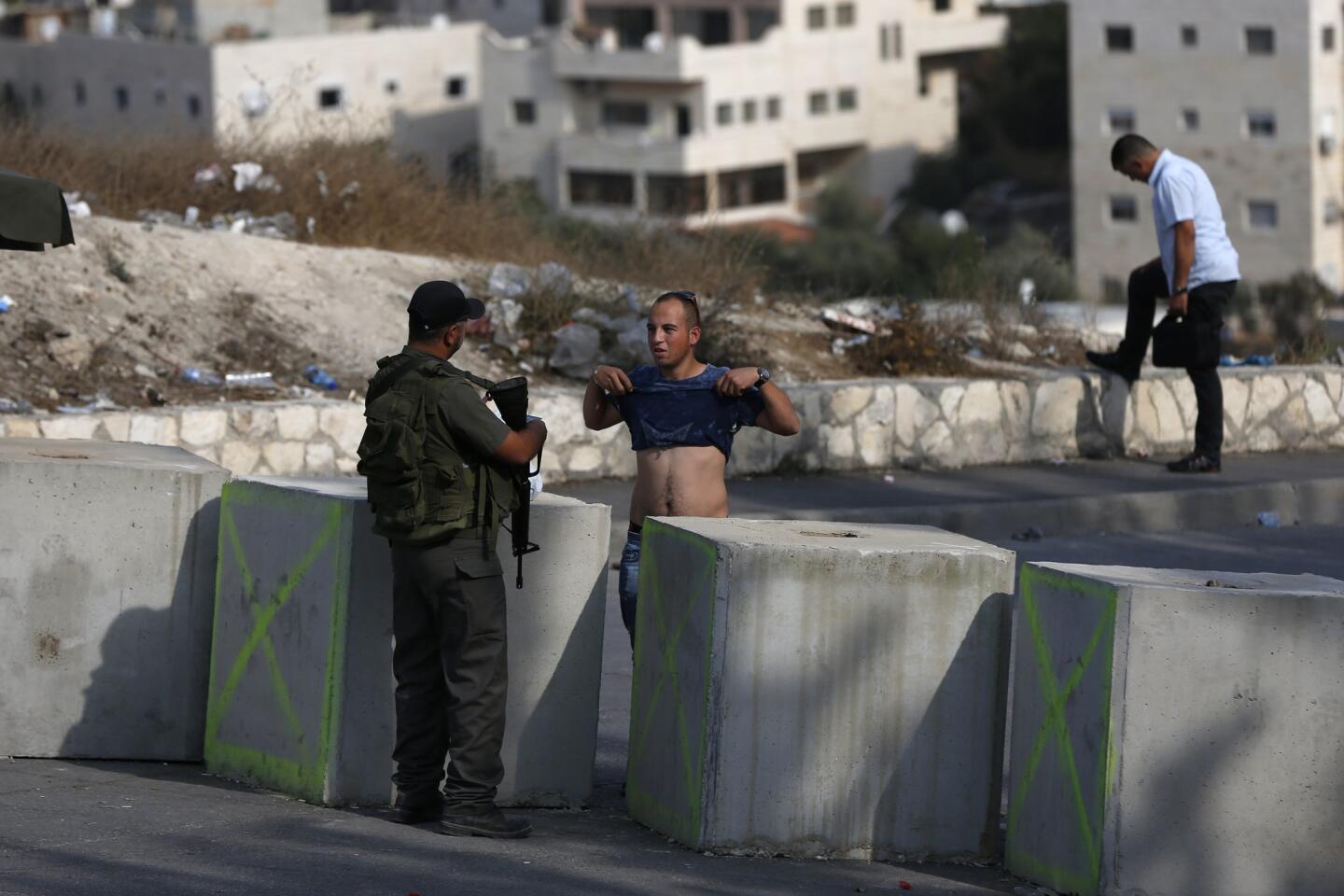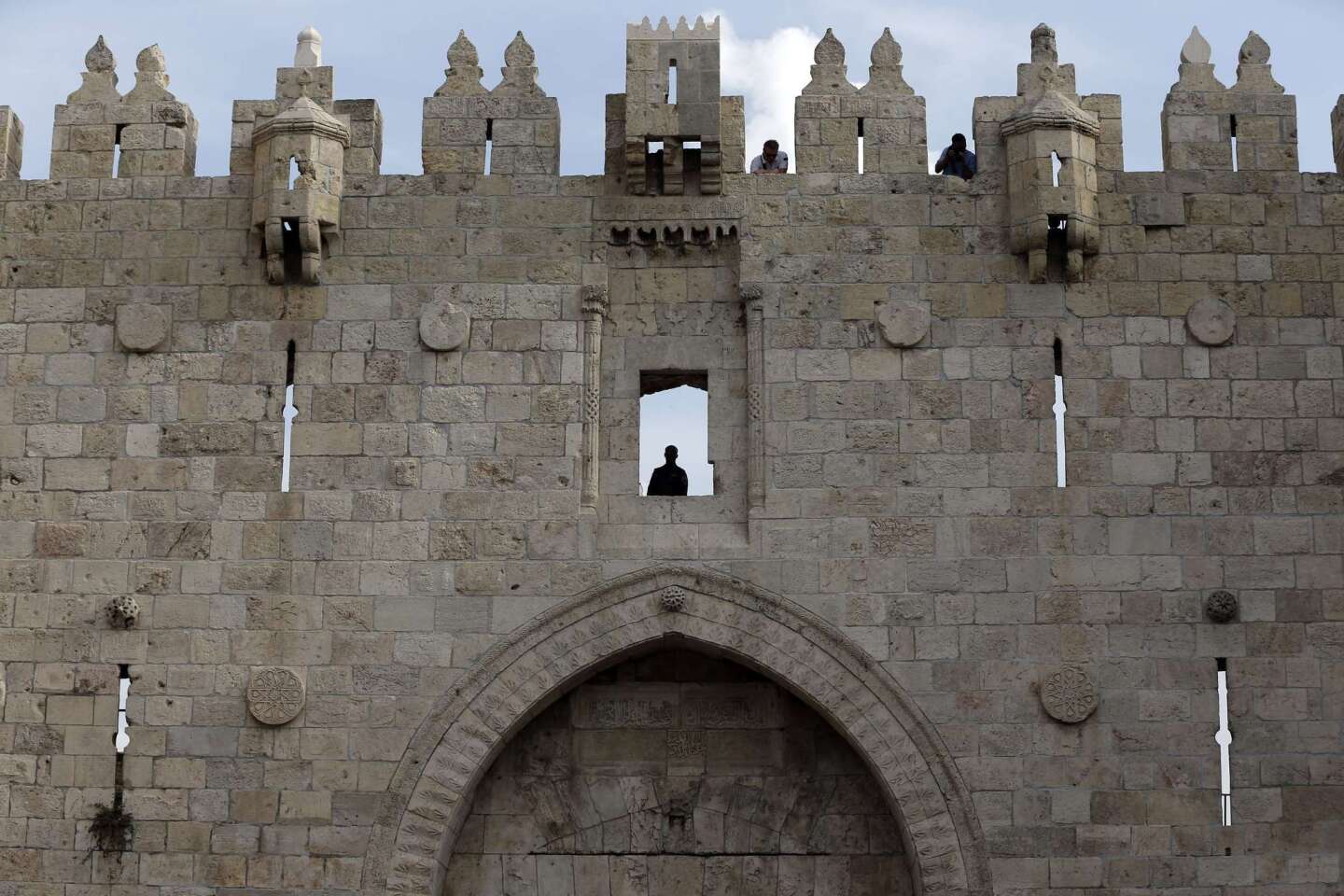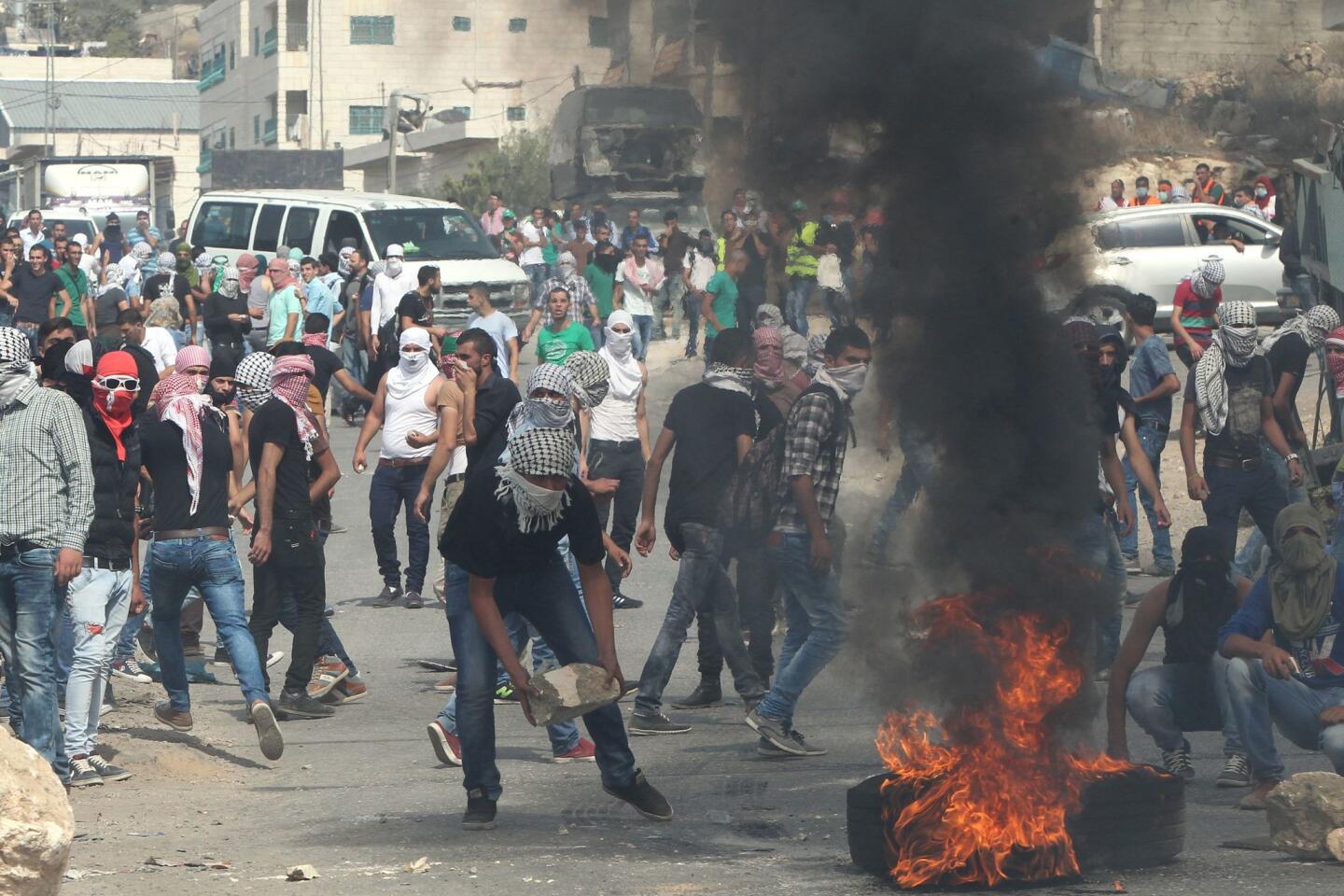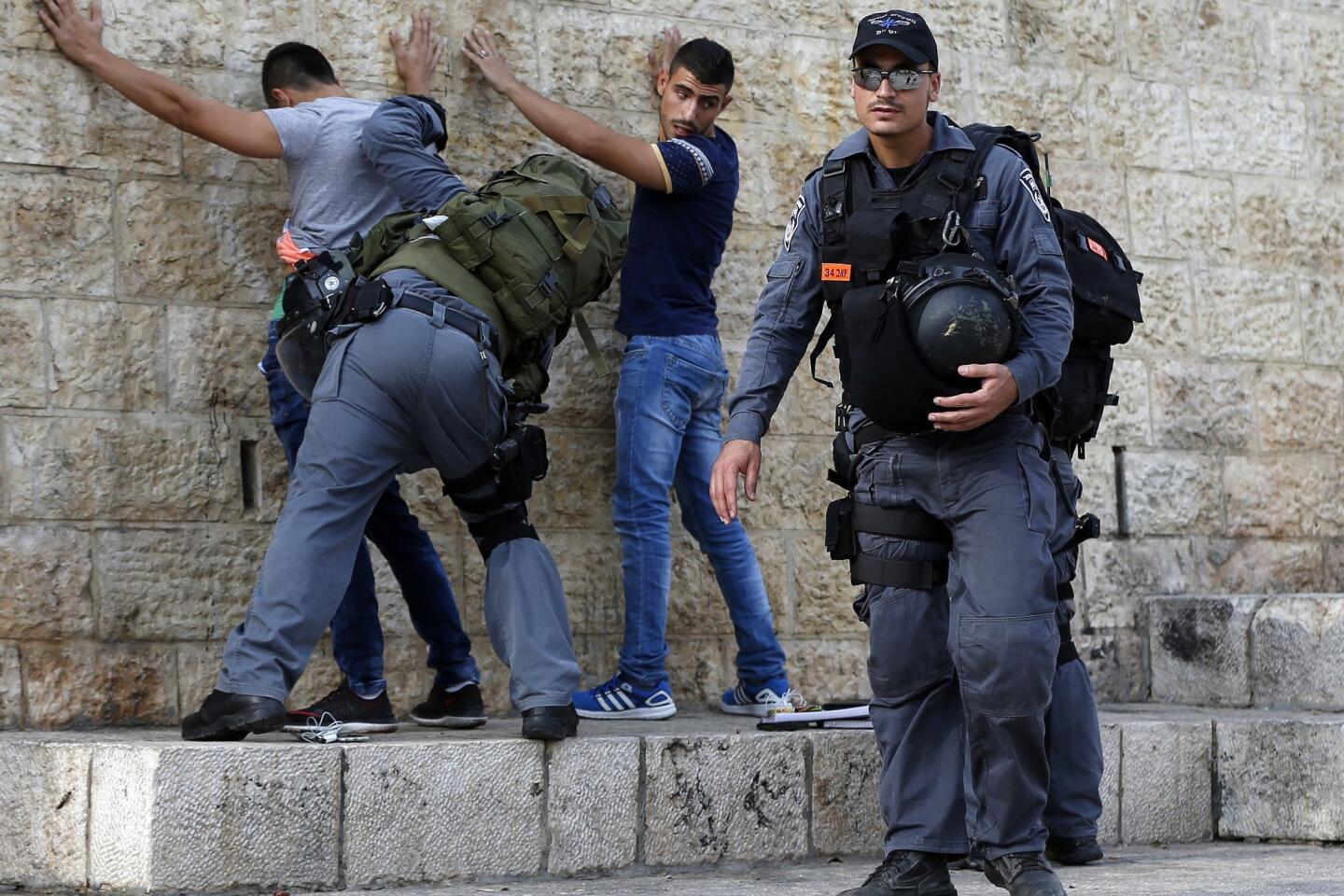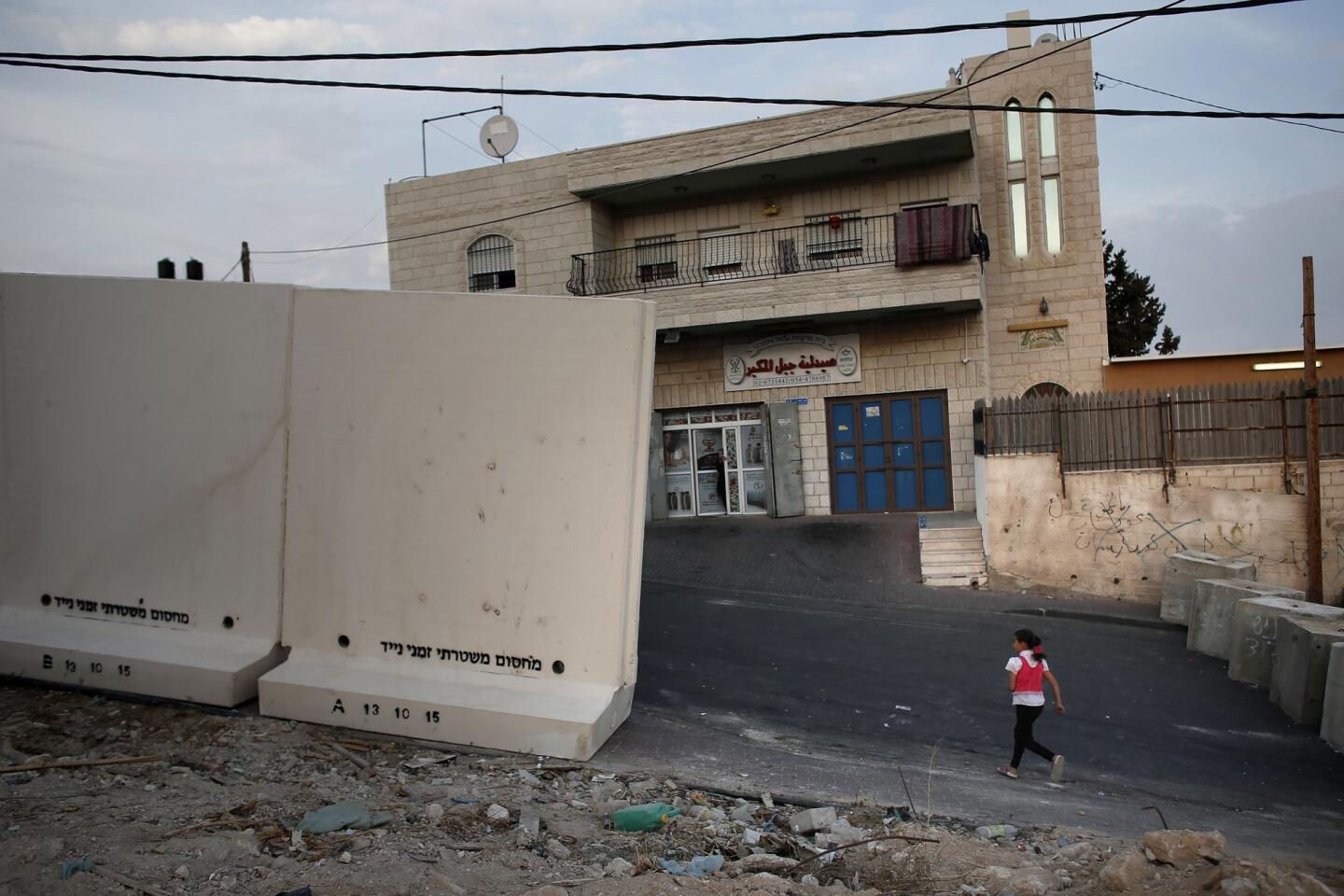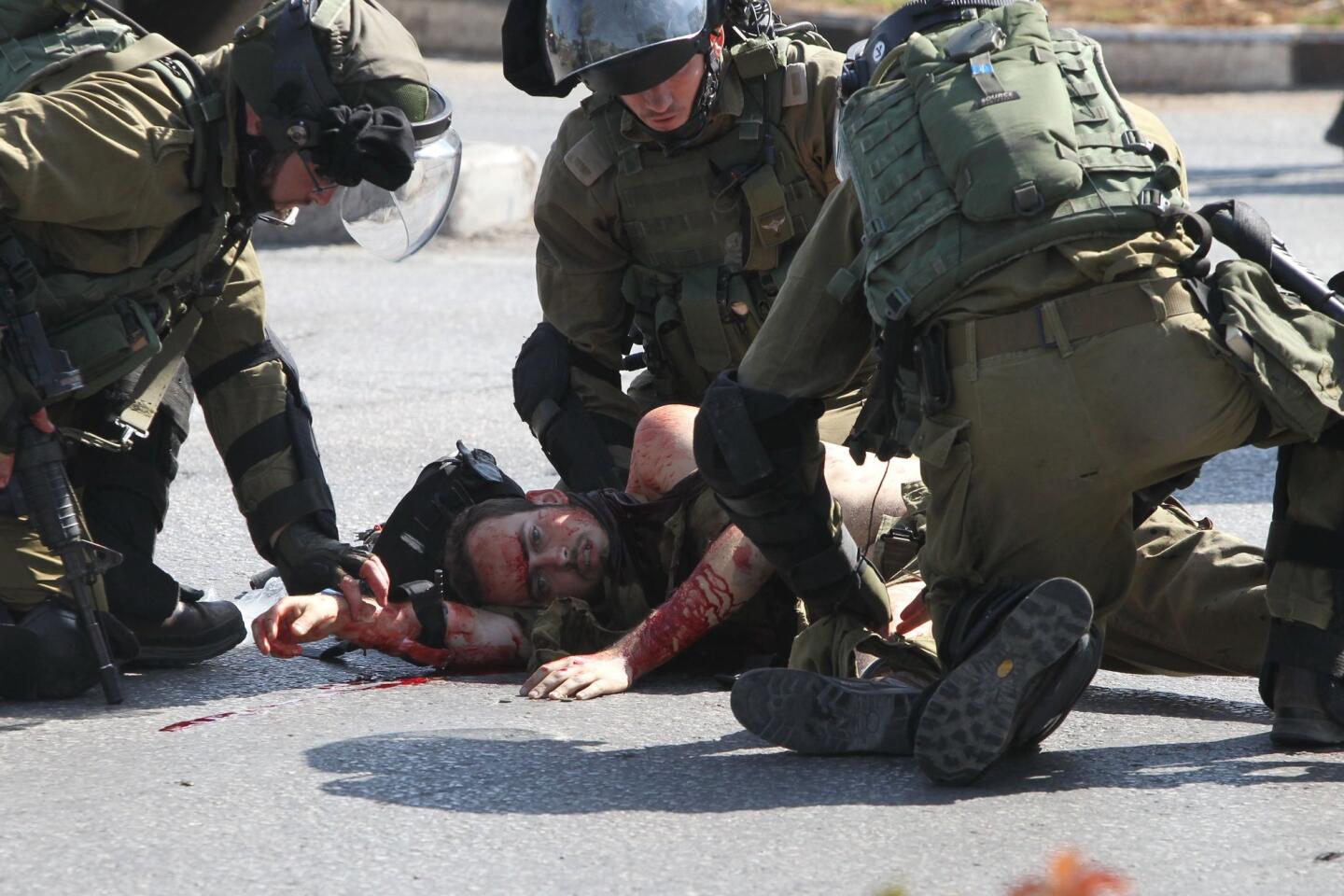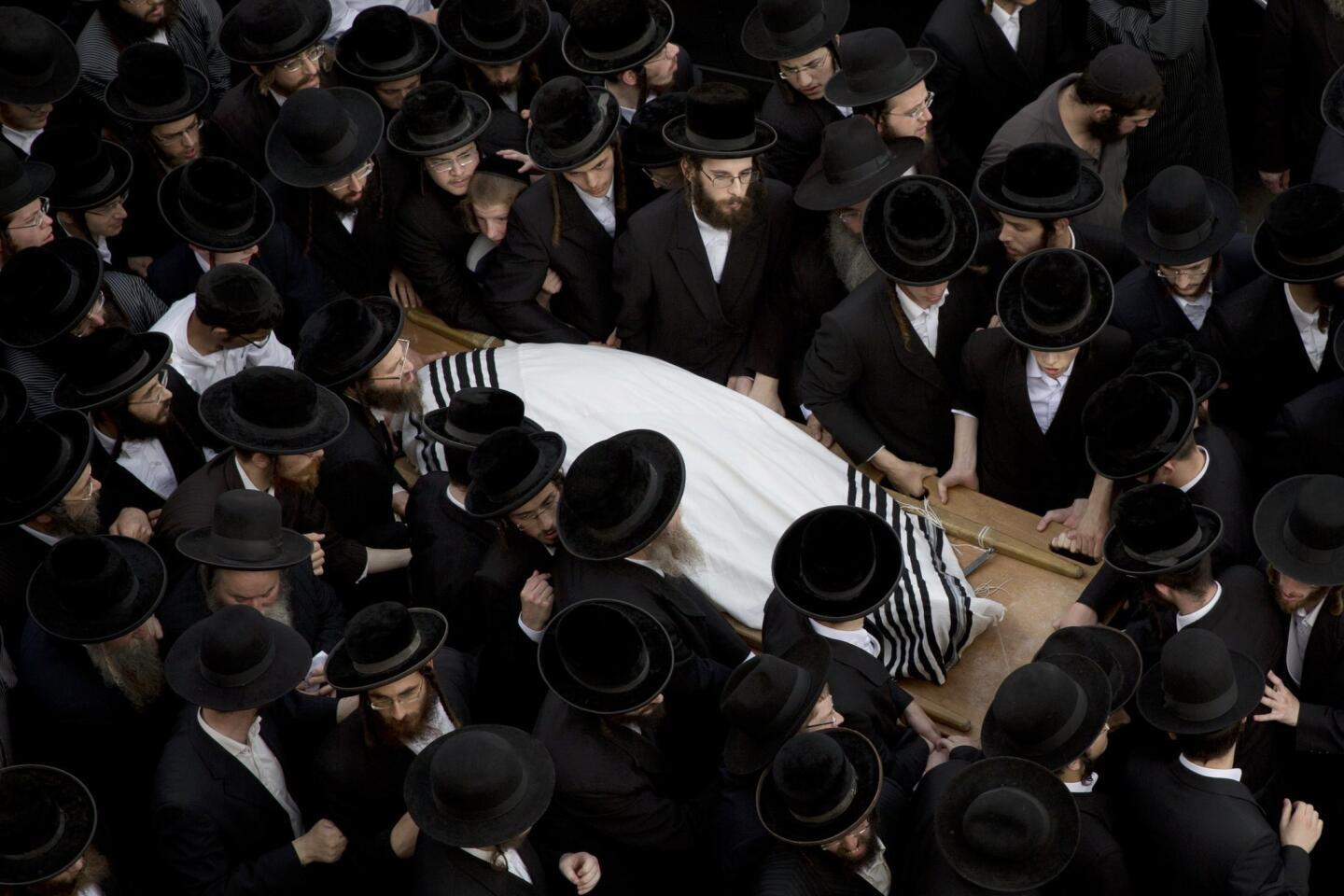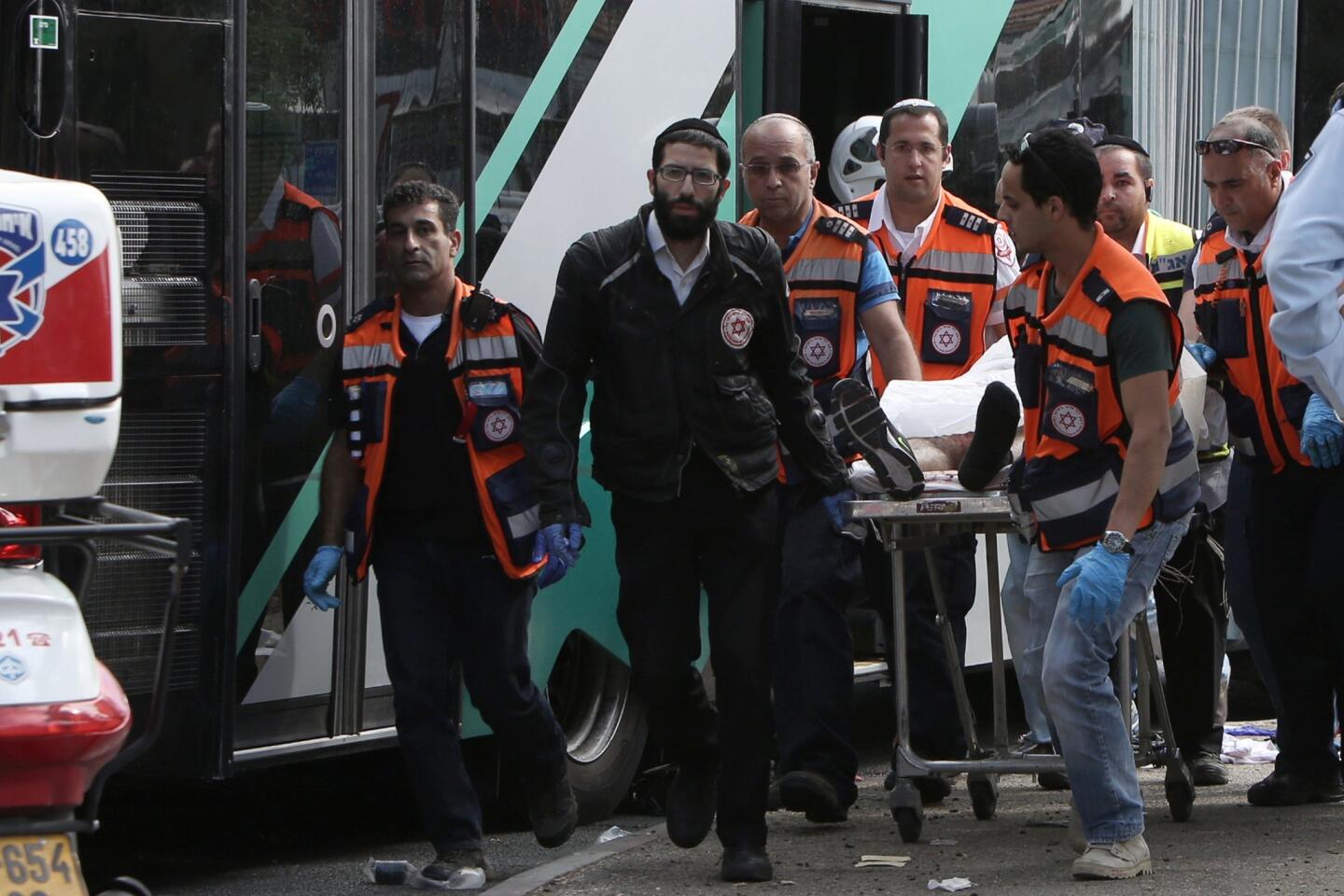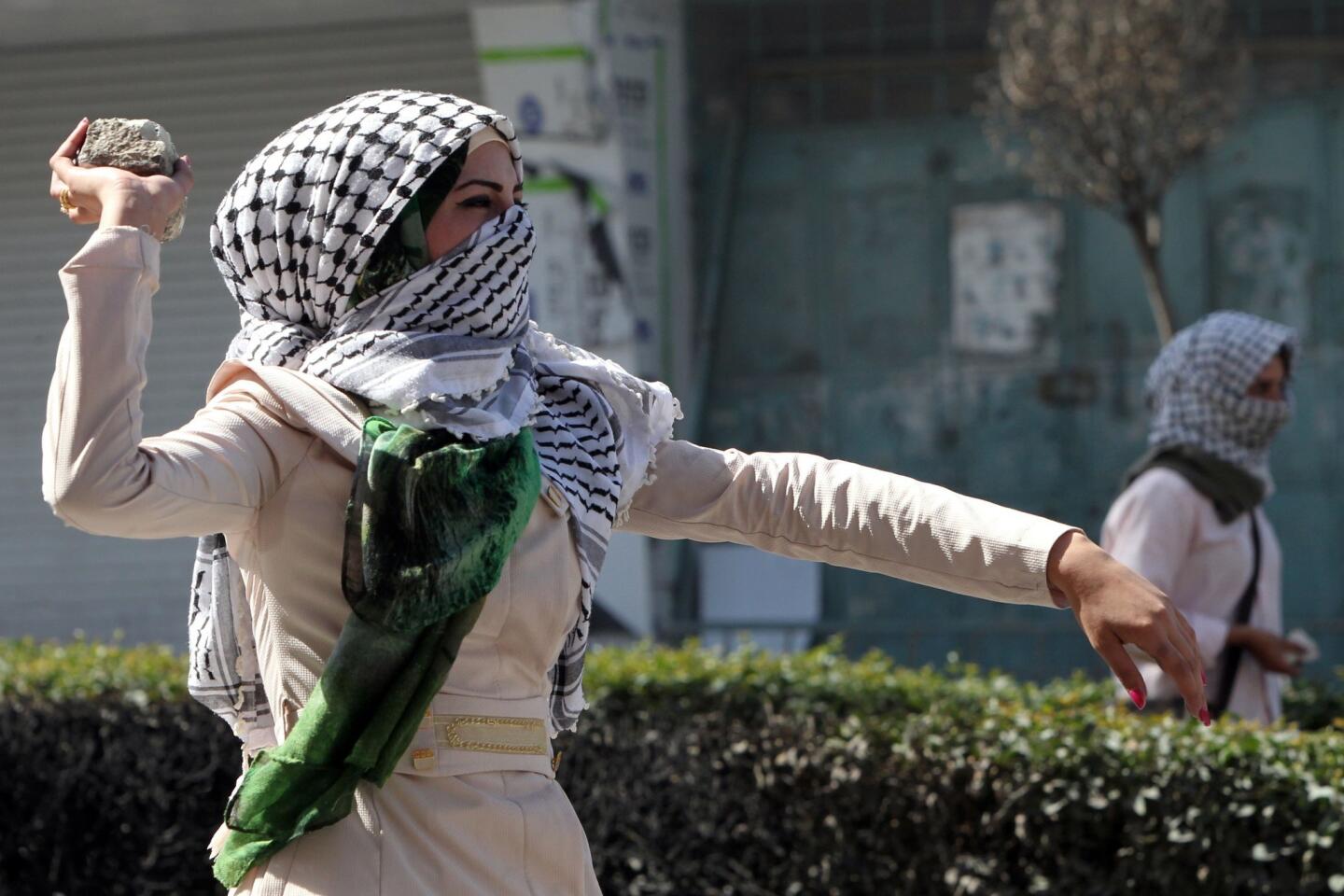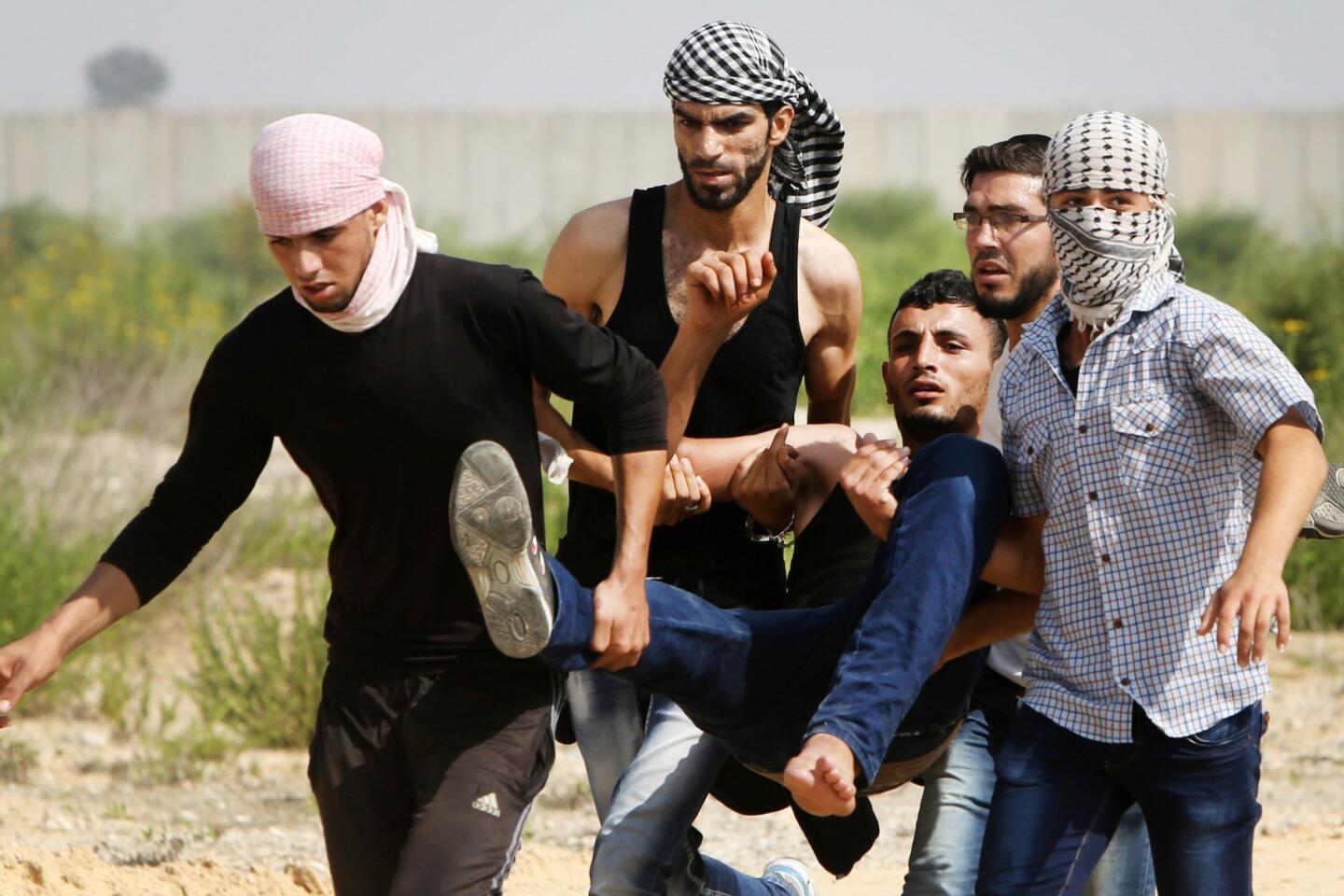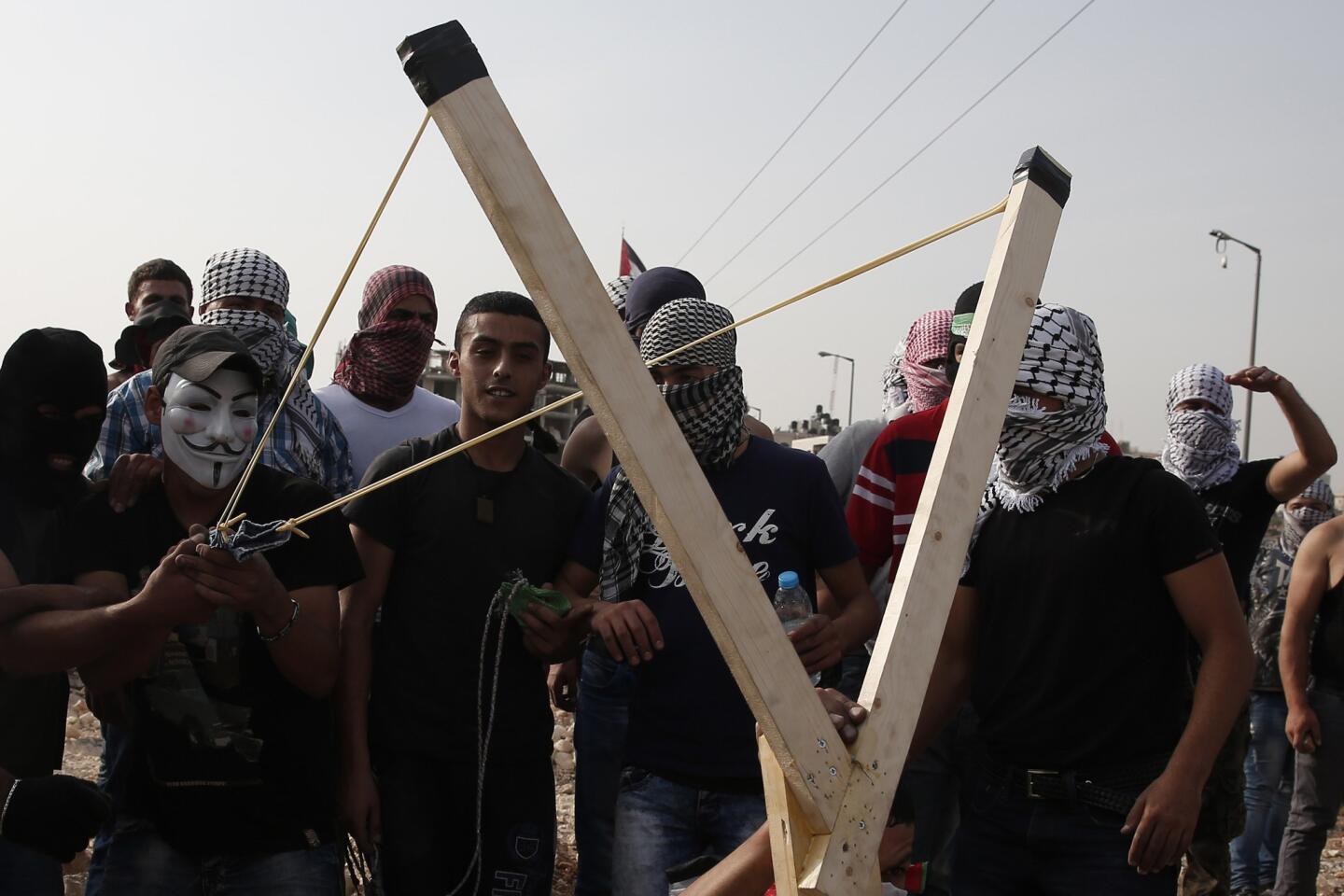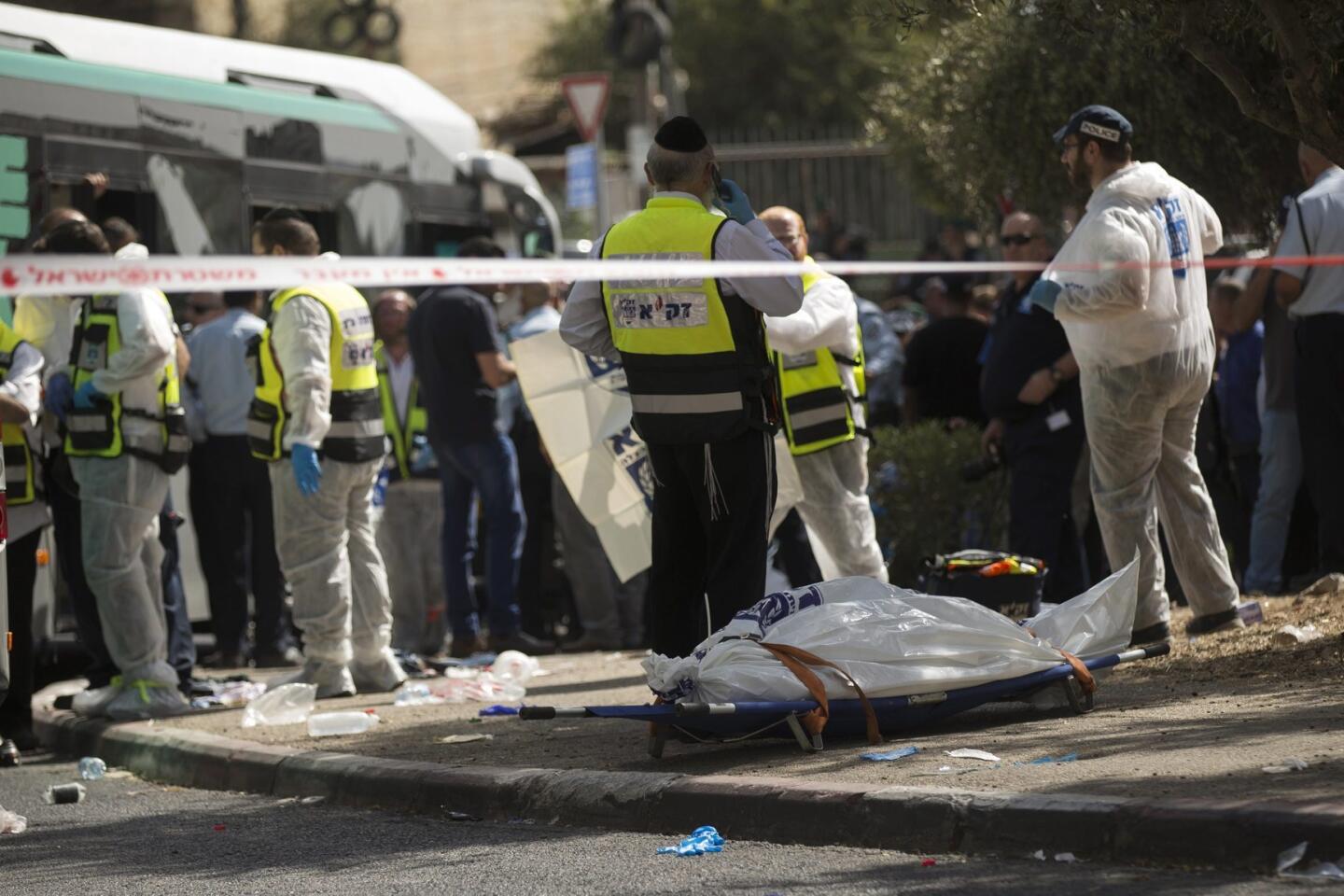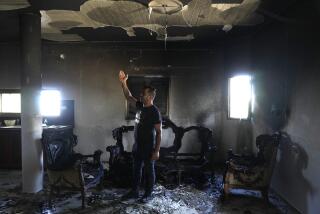Palestinian-Israeli violence raises talk of a new intifada
reporting from jerusalem — Stabbings, shootings, a bus commandeered, cars rammed into crowds: Violent attacks by Palestinians against Israelis and a full-throated Israeli security response are intensifying by the day. But is this a new intifada?
The question is a consequential one. The two sustained Palestinian uprisings that began in 1987 and 2000 scarred not only Israel and the Palestinians, but also left a mark on the wider Middle East, setting in motion events that reverberate to this day.
Played out with suicide blasts in Israeli streets and lightning Israeli military offensives in Palestinian villages, those intifadas killed and maimed thousands, radicalized many on both sides and left a legacy of mutual mistrust that helped scuttle subsequent peace efforts.
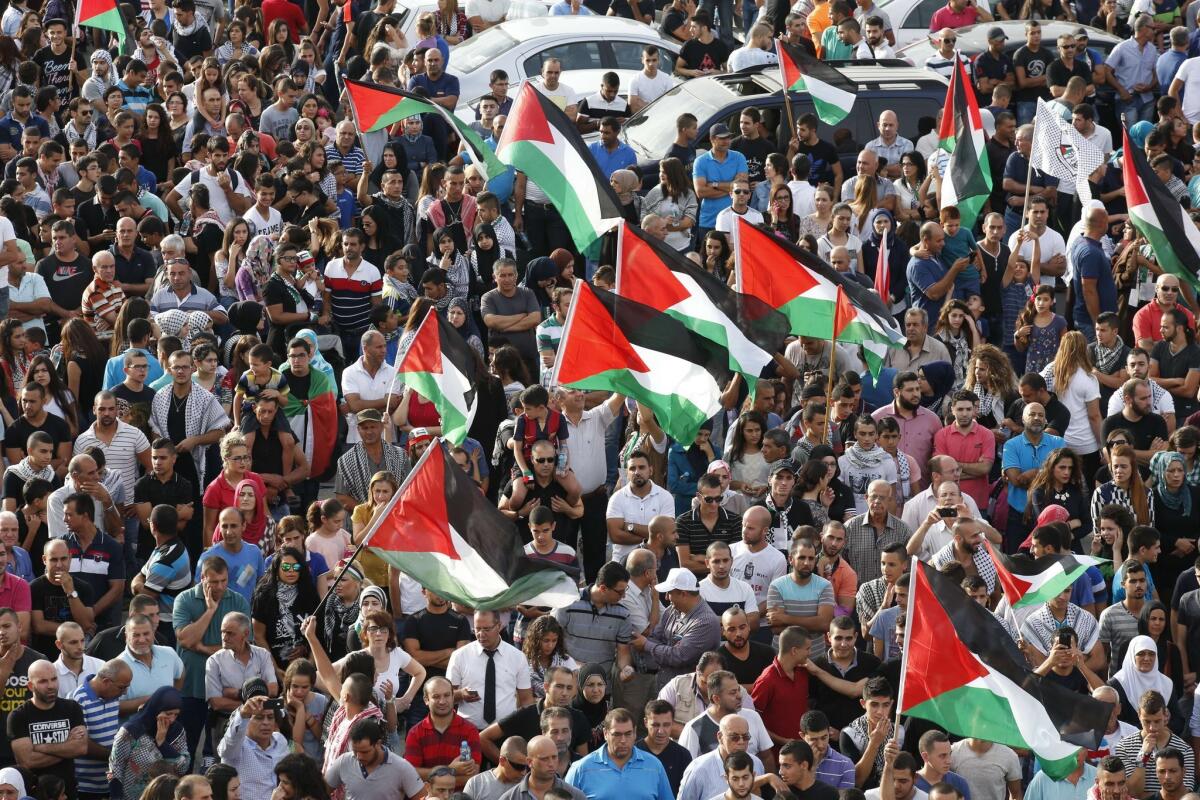
Arab Israelis, some holding Palestinian flags, take part in a large demonstration as part of a general strike to support Palestinians who call for a “day of rage” in the northern Arab-Israeli town of Sakhnin.
So is a third one in the offing? Even as the word slips into conversations, most experts point out key differences, particularly the far more organized nature of the previous conflicts, which were driven by armed Palestinian groups equipped with battlefield weapons and legions of suicide attackers, answered by the full weight of Israel’s powerful military. The ongoing spate of attacks has been primarily of the “lone wolf” variety.
“Many observers and politicians have been quick to affix the familiar label of ‘intifada’ to the current wave of violence,” the Institute for National Security Studies, a leading Israeli think tank, said in a paper published this week. “At this stage, there is no intifada according to its recognized meaning, but the current escalation … contains the seeds of decline and loss of control.”
Previous intifadas had a populist spark, a hallmark that, ominously, seems to be reemerging, galvanized by social media and would-be martyrs too young to remember the previous fighting.
“This intifada is being led by young men and women aged 20 and less,” commentator Alex Fishman wrote in Tuesday’s editions of the Yediot Aharonot newspaper. “The possibility that they themselves will be killed is not a major factor for them, since the chance of becoming a national hero and earning the admiration of their close environment attracts them more.”
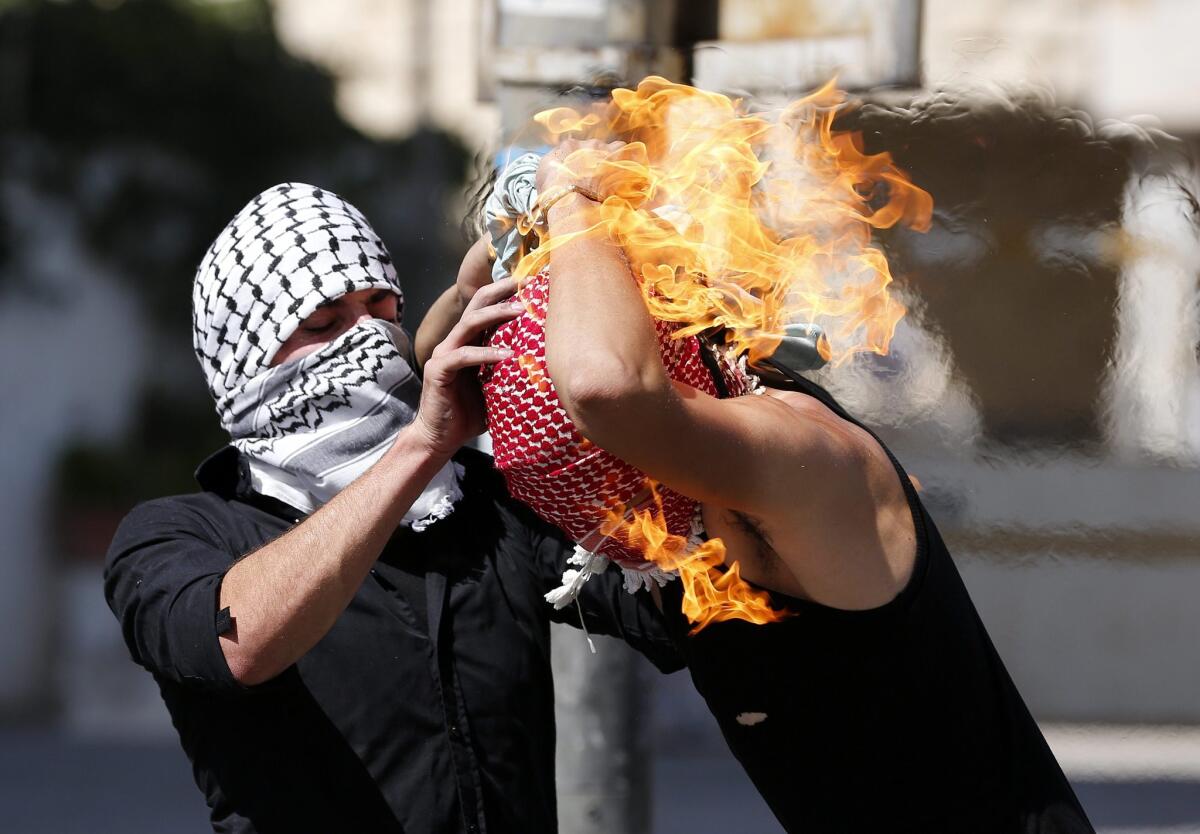
A Palestinian protester sets fire to himself as he throws a molotov cocktail during clashes with the members of the Israeli armed forces in the West Bank city of Hebron.
Some wondered, too, whether Tuesday’s violence, the most serious of the current wave, marked a turning point. At least three Israeli Jews were killed and nearly two dozen injured in four attacks in a span of a few hours, all carried out by assailants from East Jerusalem, raising to seven the Israeli death toll in the last month of assaults.
“The biggest problem with this phenomenon is that the genie is already out of the bottle,” Avi Issacharoff wrote in an analysis on Israel’s Walla! website. “And it is hard to see what could get it back in.”
Over the last month, Palestinian reports say, nearly 30 Palestinians have died in clashes with Israeli security forces, when carrying out an attack or when thought to be about to do so.
The spectrum of attackers has been widening. Assailants have mainly been young Palestinians — one knife-wielding boy was only 13 — but some are older, with steady jobs like that of a municipal worker or phone-company technician. And some was female.
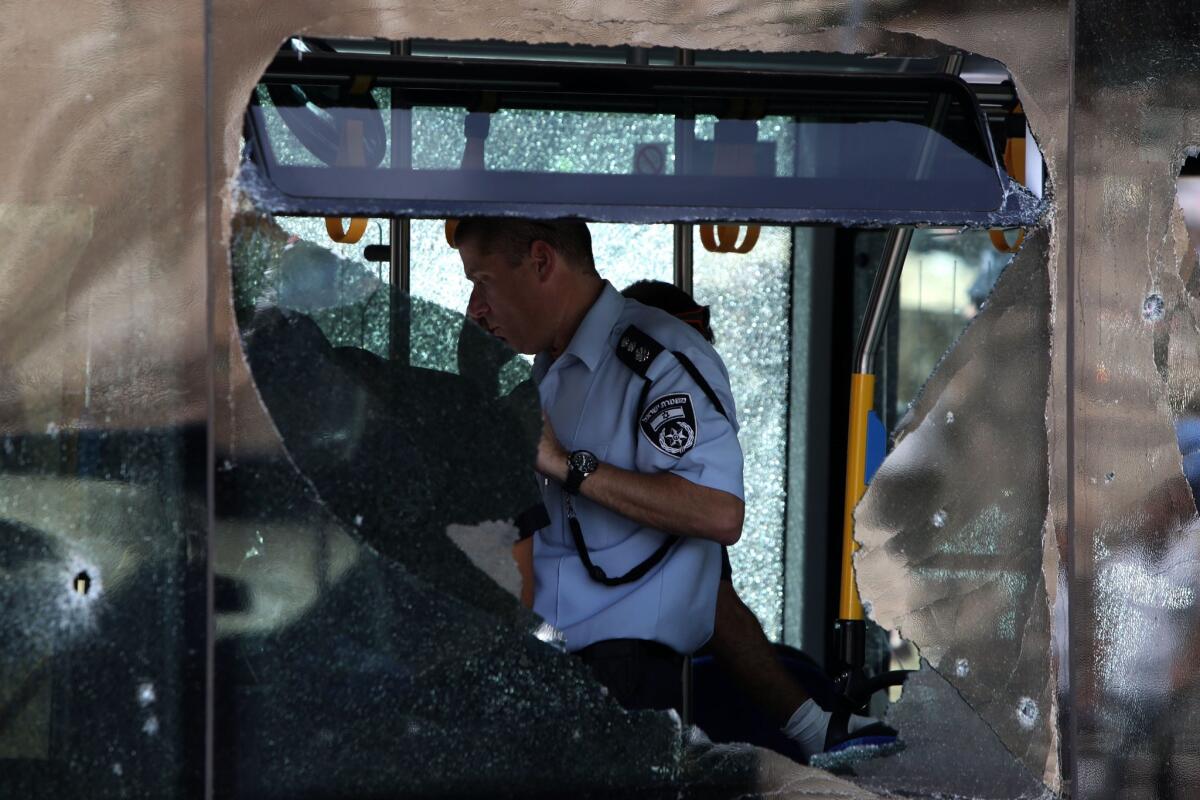
Israeli police inspect a bus after Palestinian shooting attack in the east Jerusalem Jewish settlement of Armon Hanatsiv, killing two Israelis.
Until Tuesday, stabbings were the most frequent mode of attack, but hostilities appeared to take a more systematic turn when two Palestinian men from the impoverished enclave of Jabal Mukaber in traditionally Arab East Jerusalem commandeered a bus as it passed through a Jewish neighborhood in southeast Jerusalem.
Some passengers escaped, according to witnesses, but the pair locked out arriving police while stabbing remaining passengers trapped inside. Passing motorist Golan Cohen-Gabai, who lives nearby, blocked the bus with his car and called police when he heard screams and saw the commotion, whereupon one of the assailants aimed a handgun at him through the windshield, he told Israel’s Channel Two.
Police fatally shot one attacker and wounded the second. Two of the passengers died and 17 were hurt, some seriously. In what is becoming a common sight, emergency teams arriving in the neighborhood of Armon Hanatziv treated injured passengers on the spot, with shocked residents — mothers, children, passersby — looking on from front yards and sidewalks.
Prime Minister Benjamin Netanyahu called an urgent meeting of his security Cabinet to discuss efforts to protect the public. But Israeli officials acknowledge that isolated assaults making use of everyday objects such as cars and knives are extremely difficult to prevent, as they generally do not involve attackers with links to militant organizations.
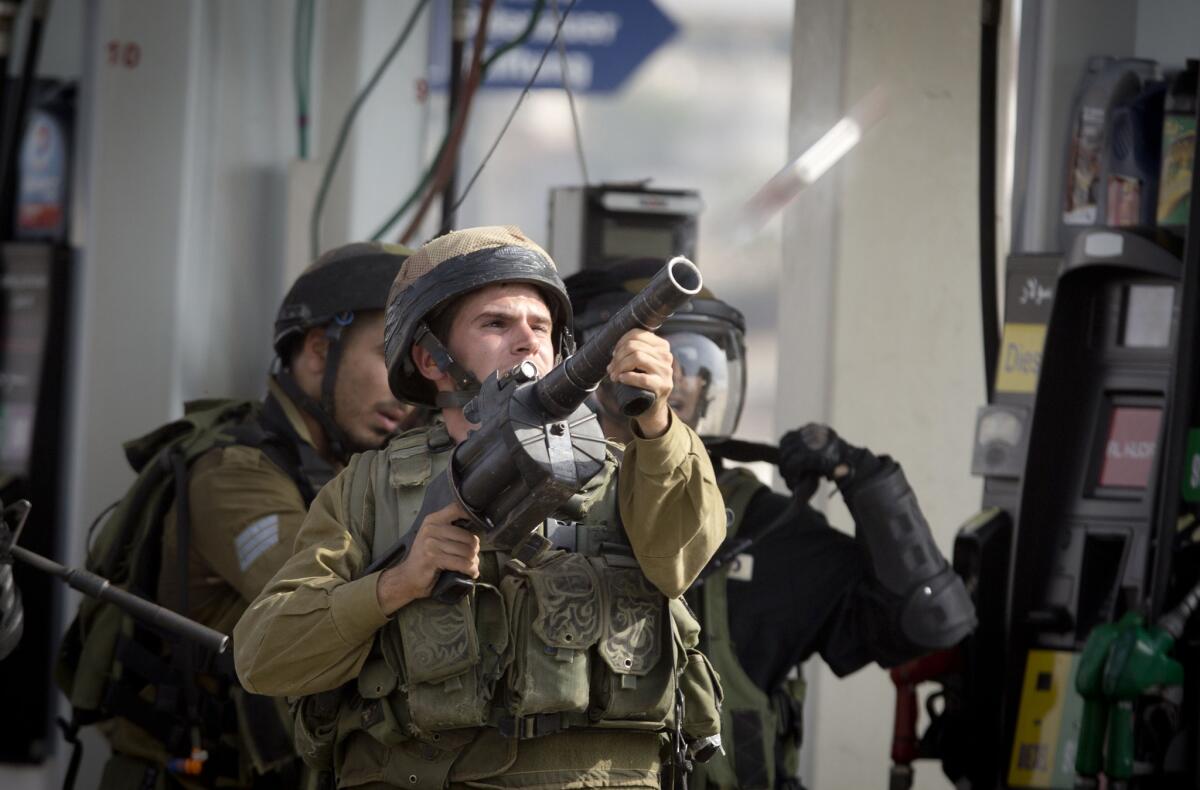
An Israeli soldier fires a tear gas canister during clashes with Palestinian protesters near Ramallah, West Bank.
Palestinians lay blame for the spate of attacks — most of them on a relatively small scale, but with outsize psychological effects — on increasingly harsh measures, which they view as collective punishment.
There is rising anger among them over the fact that attackers armed with knives, even young teens, are often shot dead on the spot. On Tuesday, speaking to reporters in the West Bank city of Ramallah, onetime Palestinian peace negotiator Saeb Erekat, a confidant of Palestinian Authority President Mahmoud Abbas, called Israeli actions “war crimes.” As he spoke, a video played, showing a teenage assailant bleeding on the ground while a crowd of Israelis gathered around shouted that he deserved to die.
The Palestinians also cite long-simmering grievances over a key contested religious site in Jerusalem’s Old City and tightened restrictions on traditionally Arab areas of Jerusalem, claimed by both sides as their capital. The violence has been centered in and near the holy city, though it has also struck in places such as seaside Tel Aviv, which often considers itself insulated from Jerusalem’s frictions, and traversed the West Bank from north to south, with clashes Tuesday in Bethlehem.
Almost at the same time the bus attack unfolded in southeast Jerusalem, another assault occurred on the other side of town, where a Palestinian man rammed a vehicle into a group of people standing at a bus stop in an ultra-Orthodox Jewish neighborhood not far from the main entrance to Jerusalem. A 60-year-old man waiting for the bus was killed and two other people were hurt.
According to witnesses and police images, the driver emerged from the car afterward and rushed at victims with a meat cleaver. Security forces, arriving on the scene within minutes, shot him dead.
The man identified as the assailant had worked for years as a technician for Israel’s Bezeq phone company and even used company car as his weapon. News of the attacker’s identity stunned his employers, who issued a condemnatory statement. Later, it emerged in news reports that the attacker was a cousin of two men who last year attacked a Jerusalem synagogue with guns and meat cleavers.
At the site of the bus attack, with security forces still swarming the area and inspecting the interior of the bloodied bus, Jerusalem Mayor Nir Barkat called for a lockdown of the city’s Palestinian neighborhoods, where many already feel hemmed in by barricades, checkpoints and other restrictions on their movement.
Barakat said public safety — by implication, that of the city’s Israeli residents — was “more important than the quality of life” in traditionally Arab East Jerusalem. He called on Jerusalemites to remain vigilant but refrain from taking the law into their own hands or hampering the work of police.
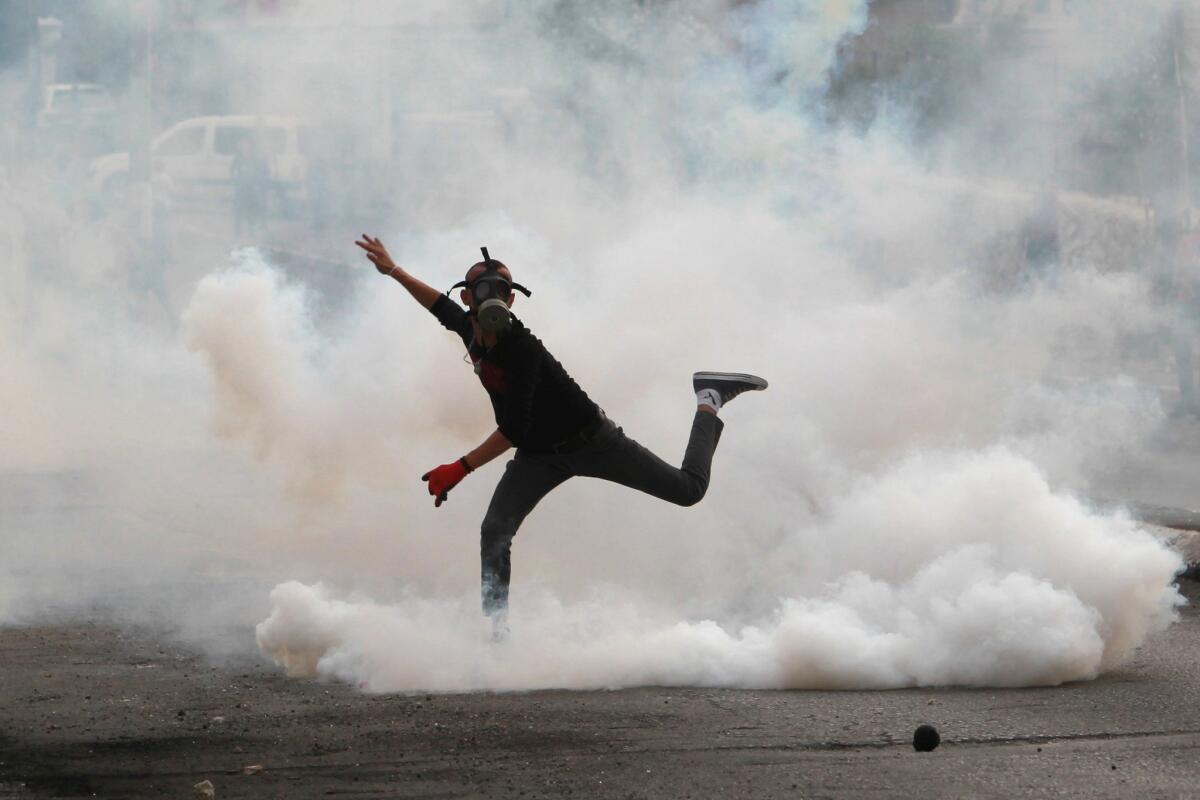
A Palestinian protester throws a tear gas canister back during clashes with Israeli security forces at the main entrance of the West Bank city of Bethlehem.
Acting Police Commissioner Bentzi Sau said before the meeting of Netanyahu’s security Cabinet that officials in all Israeli security branches would be ordered to submit stepped-up operational plans, but did not disclose whether a closure of Palestinian neighborhoods in Jerusalem was among them.
The violence radiated outward from Jerusalem on Tuesday, with four Israelis injured in two stabbing attacks in Raanana, a peaceful bedroom community a little more than an hour’s drive away that is home to many U.S. nationals. Bystanders helped apprehend the two assailants, and the Jerusalem-Tel Aviv highway was temporarily blocked while security forces pursued a car they believed was used to transport at least one of the assailants.
In predominantly Jewish West Jerusalem, traffic was thin Tuesday, and normally packed cafes had only a trickle of customers. One grocer in the city center, eager to hear a foreign visitor’s impressions, tried to put the best face on things.
“It’s bad this week, yes,” he said. “But maybe by next week, everyone will forget.”
Twitter: @laurakingLAT
Special correspondents Batsheva Sobelman in Jerusalem and Maher Abukhater in Ramallah contributed to this report.
ALSO
Iran’s Revolutionary Guard mourns a general killed in Syria
Knife assaults on Israelis continue wave of violence in Jerusalem
Jason Rezaian’s family still not told what verdict is in Iran spying case
More to Read
Sign up for Essential California
The most important California stories and recommendations in your inbox every morning.
You may occasionally receive promotional content from the Los Angeles Times.
